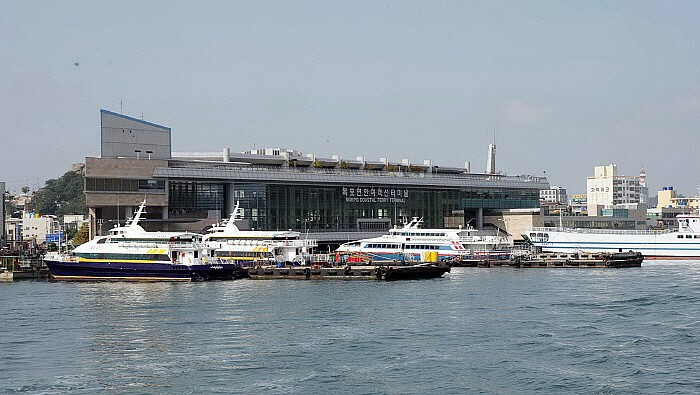
Mokpo, Jeonnam Province – A groundbreaking initiative launched by Jeonnam Province in 2021, the "One-Dollar Ferry" program, has demonstrably transformed the lives of its island residents, facilitating over 5.56 million journeys to date. This pioneering fare support system, the first of its kind at the provincial level nationwide, has not only eased the financial burden of transportation but has also fostered greater connectivity and access to essential services for communities scattered across the region's numerous islands.
The core principle of the One-Dollar Ferry is simple yet impactful: island residents pay a nominal fee of 1,000 Korean Won (approximately $0.75 USD), with the remaining ferry fare subsidized through a collaborative effort between the Jeonnam Provincial Government and participating city/county administrations. This shared financial responsibility underscores the commitment to ensuring equitable access to transportation for even the most remote communities within the province.
The program's financial commitment has seen a steady increase since its inception, reflecting its growing utilization and recognized importance. Starting with a budget of 1 billion KRW in 2021, the allocated funds rose to 3 billion KRW in 2022, 3.6 billion KRW in 2023, and currently stand at 4.3 billion KRW for both 2024 and the ongoing year. This consistent budgetary expansion highlights the program's sustainability and the unwavering support it receives from regional authorities.
Jeonnam Province holds a unique geographical significance, boasting an impressive 2,165 islands, which constitute approximately 65% of all islands in South Korea. Among these, 274 are inhabited, providing homes to roughly 159,000 individuals. For these island communities, ferries are not merely a mode of transport; they serve as vital lifelines, connecting them to the mainland for critical needs such as medical appointments, educational opportunities for their children, procurement of essential daily supplies, and participation in broader economic and social activities.
Historically, the cost of ferry travel has presented a significant barrier for island residents. The average ferry fare per kilometer in the region stands at 387.3 KRW, considerably higher than alternative modes of transportation such as air travel (214.5 KRW/km), high-speed rail (142.7 KRW/km), and intercity buses (131.8 KRW/km). This disparity in transportation costs has often led to a sense of isolation and limited access for island communities.
The introduction of the One-Dollar Ferry has effectively dismantled this barrier, empowering island residents with unprecedented freedom of movement. The overwhelming positive response from the beneficiaries underscores the program's success. Park, a resident of Wando Island, eloquently articulated this sentiment, stating that the reduction in round-trip transportation costs from 40,000-50,000 KRW to a mere 2,000 KRW has had a transformative impact on his ability to connect with the mainland.
The innovative approach of Jeonnam Province has garnered national attention, serving as a model for other regions grappling with similar challenges of island connectivity. Several provincial and metropolitan governments, including Gyeonggi Province, North Jeolla Special Autonomous Province, South Gyeongsang Province, and Incheon Metropolitan City, are reportedly in the process of benchmarking the One-Dollar Ferry program and exploring the feasibility of implementing similar initiatives in their respective jurisdictions. This widespread interest underscores the program's effectiveness and its potential for broader application across South Korea's coastal regions.
Recognizing that transportation costs extend beyond ferry fares, Jeonnam Province has concurrently implemented a suite of complementary support programs aimed at alleviating the overall financial burden of logistics for island residents. These initiatives include an 800 million KRW allocation for subsidizing additional 택배 (courier) charges incurred by island residents, a 1 billion KRW fund to offset the maritime transport costs of daily necessities, and a 200 million KRW provision for general essential goods logistics support. Furthermore, the province offers fare assistance to island residents transporting vehicles via ferry and operates dedicated routes to serve transportation-disadvantaged areas lacking regular ferry services.
Looking ahead, Jeonnam Province is advocating for the expansion of the public operation system for ferries to the central government. Currently limited to five designated routes, the province aims to extend this system to cover all financially challenging routes within Jeonnam. This strategic move seeks to ensure the long-term stability and reliability of ferry services, thereby guaranteeing the fundamental right to mobility for all island residents, regardless of the route's profitability.
In addition to the One-Dollar Ferry, Jeonnam Province is also actively lobbying the national government for broader financial support for general public ferry fares. This dual approach – direct fare subsidies and systemic improvements to ferry operations – demonstrates a comprehensive commitment to enhancing the quality of life and economic viability of Jeonnam's island communities.
A spokesperson for the Jeonnam Provincial Government emphasized the profound significance of the One-Dollar Ferry program, stating, "This initiative transcends a simple transportation cost subsidy; it is a cornerstone policy that safeguards the mobility of our island residents and underpins their very livelihoods. We are unwavering in our commitment to further expand this program in a manner that continuously improves the living conditions and ensures the long-term prosperity of our cherished island communities." The success of the One-Dollar Ferry stands as a testament to the power of innovative policy and dedicated governance in bridging geographical divides and fostering inclusive growth for all citizens.
[Copyright (c) Global Economic Times. All Rights Reserved.]




























